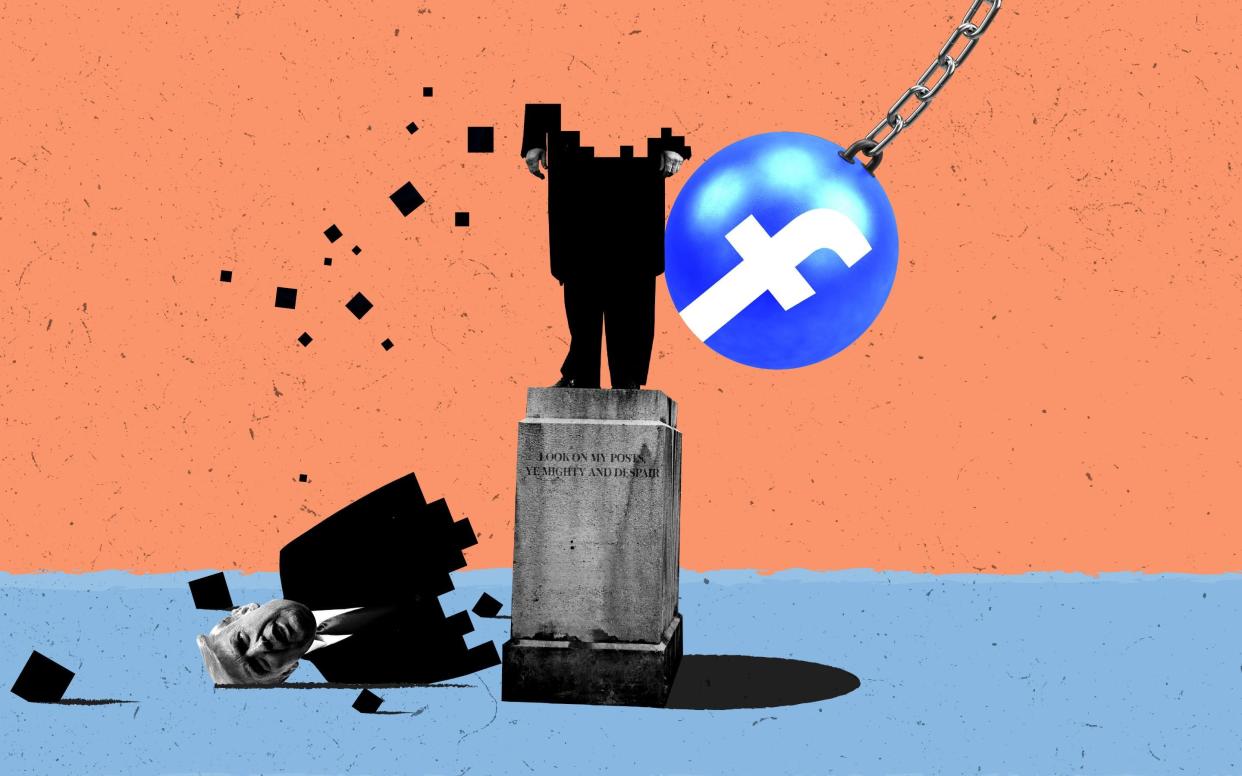Facebook hid rules that led to Trump ban, says its ‘supreme court’

Facebook kept its own “supreme court” in the dark about a security system that let posts by prominent politicians and celebrities break its rules.
The tech giant was not “fully forthcoming” with information about the “cross-check” system that was used as part of the decision to ban former US President Donald Trump, according to members of the Oversight Board.
The quasi-independent body, whose members include the former Guardian editor Alan Rusbridger, was set up by Mark Zuckerberg’s company last year to review moderation decisions made by the technology giant.
In a transparency report about its decision-making, the Oversight Board chastised Facebook for failing to hand over key information about the “whitelisting” software.
“On some occasions, Facebook failed to provide relevant information to the Board, while in other instances, the information it did provide was incomplete,” it said.
The board’s co-chairs hit out at Facebook after it failed to tell them about cross-check when it first referred the decision to ban Mr Trump for review in January.
The cross-check system ensured that prominent figures and politicians required additional authorisation to moderate, and was kept hidden from users. Its existence was revealed by the Wall Street Journal earlier this year.
The board said Facebook only mentioned the system after being pressed by members over what additional checks Mr Trump’s page was subject to. The board said the company later admitted it may have come across as “misleading” by saying the system was only used in a “small number” of cases, rather than thousands.
The Oversight Board, which has come under scrutiny over its ability to challenge Facebook’s decisions, warned the tech giant risked jeopardising the “credibility” of the body. The board said it was conducting a review of the “cross-check” tool.
The board also warned Facebook that it was not giving users enough transparency over its decisions, having received half a million appeals about banned posts.
“We know these cases are just the tip of the iceberg,” the board said. “Right now, it’s clear that by not being transparent with users, Facebook is not treating them fairly.”
A Facebook spokesman said: "We thank the board for their ongoing work and for issuing their transparency report. We believe the board's work has been impactful, which is why we asked the board for input into our cross-check system, and we will strive to be clearer in our explanations to them going forward."
Separately, Facebook reached an agreement with the French press alliance to pay national and regional newspapers for using excerpts of their articles shared on the social network.
The financial terms of the agreement, which took two years to be reached, were not disclosed but the company said it meant the Facebook News service would launch in France in January.
Pierre Louette, president of the APIG, said the deal meant Facebook would now comply with European Union and French law and bring “significant financing for the alliance’s members, especially the smallest of them”.

 Yahoo News
Yahoo News 
